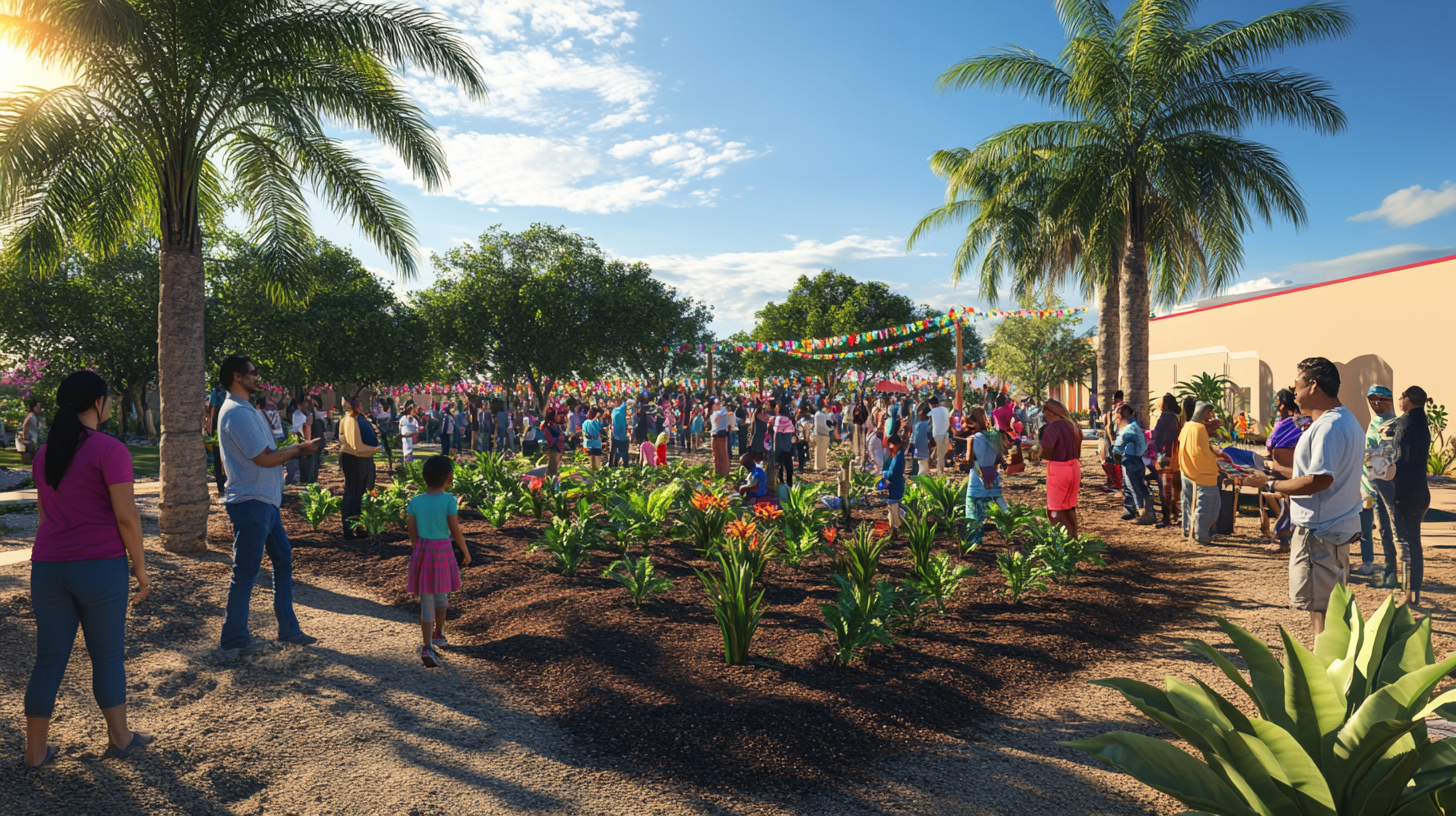Tiny Forest Project Blossoms at McAllen Public Library
The city of McAllen has taken another step toward environmental enrichment and community engagement with the inauguration of its sixth “tiny forest” at the McAllen Public Library. Featuring over a thousand native plants and trees, this initiative stands as a testament to the community’s commitment to sustainability, wildlife conservation, and education.
Community and Environment at the Heart
Aligned with previous projects, the newly planted tiny forest is strategically located near McAllen Public Library, facilitating access to educational resources about native plant species. The project’s primary aim is to foster a connection between nature and community, especially among the younger residents of McAllen. “Over a thousand native Rio Grande Valley plants and trees are going to attract bees, butterflies, animals, and most importantly, the youth from McAllen,” says Xochitl Mora, McAllen Communications Director.
Dr. Joseph Ryan, President of the McAllen Public Library Advisory Board, echoed this sentiment, stating, “It’s very important that we have people learn not just from books, but also from nature. We want people to be inside, and we want people to be outside. This is a great way to learn about all the native plants that we have here.” This sentiment highlights the dual benefit of the project as both an ecological and educational resource.
A Collaborative Effort for the Future
Community initiatives such as the tiny forest require significant support, and McAllen has received generous backing from HEB, a local business invested in the region’s sustainability and growth. With a contribution exceeding $35,000, HEB’s involvement emphasizes the importance of public-private partnerships in achieving community-driven goals. Furthermore, the city envisions future expansions, signalling long-term plans for additional tiny forests.
HEB’s commitment demonstrates how corporate entities can play a crucial role in regional development, benefiting wildlife and Valley residents alike. The presence of these local sponsors ensures that the benefits of such projects are sustainable and widely felt across the community.
The Local Impact and Broader Implications
The tiny forest project is more than just a city beautification effort; it represents a shift toward increased environmental awareness among Valley residents. McAllen’s initiative complements similar ongoing efforts, reflecting broader trends in South Texas, where communities prioritize local impact and sustainability. “This isn’t just about planting trees; it’s about planting the seeds of knowledge and understanding about nature among our youth,” added Mora, emphasizing the multigenerational impact of the initiative.
In addition to immediate ecological benefits, the location near the library provides McAllen’s youth with an interactive educational platform. Children can explore the tiny forest and then delve into library resources to deepen their understanding, creating a cyclical learning experience that ties literature with real-world ecological observations.
Challenges and Moving Forward
While the benefits of the tiny forest are clear, it is essential for community leaders to address potential challenges. Balancing economic development with ecological preservation requires thoughtful planning and ongoing community engagement. A similar initiative is underway in Rio Grande City, where officials are seeking public input for a downtown revitalization project.
By fostering broad-based dialogues, these communities ensure transparency and receptiveness to public needs, enhancing project sustainability and success. Future implications for the RGV could include increased ecological tourism, educational workshops, and new partnerships between local governments and businesses.
Conclusion
The tiny forest at McAllen Public Library is a compelling example of how community interest and environmental stewardship can converge to foster growth and learning. For cities like McAllen, embracing these dual priorities leads to tangible improvements in quality of life and regional pride. As the project takes root and expands, it serves as a model for other South Texas communities, illustrating that big changes can come from tiny beginnings.
For further information or to participate in future tiny forest projects, McAllen residents are encouraged to reach out to the city’s Green Initiatives Office or visit the McAllen Public Library for ongoing updates. Together, Valley residents can contribute to a sustainable and enriched environmental future.







